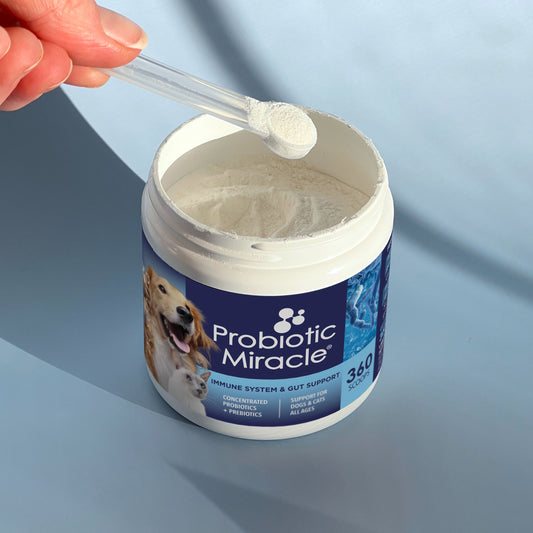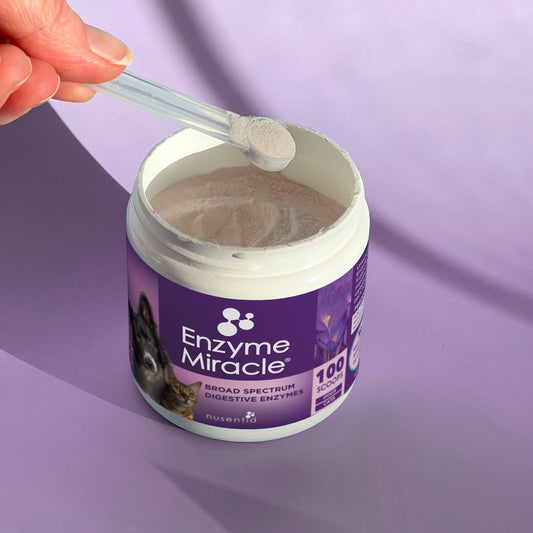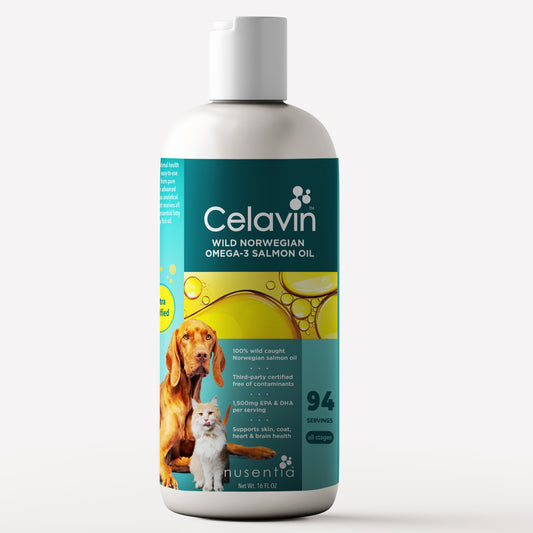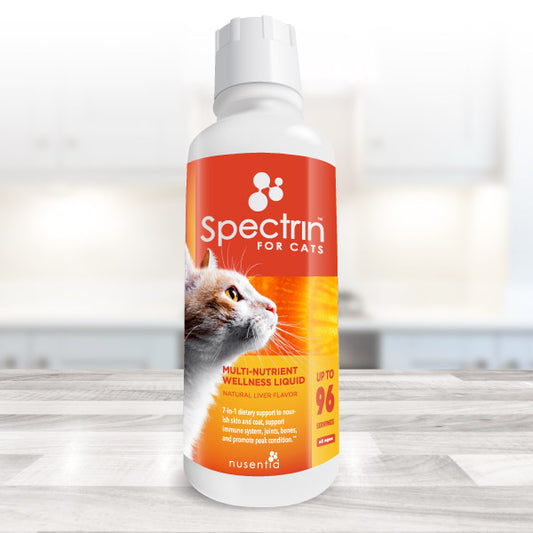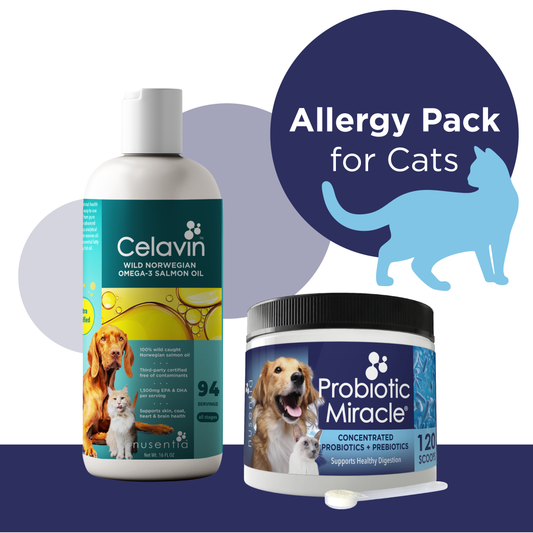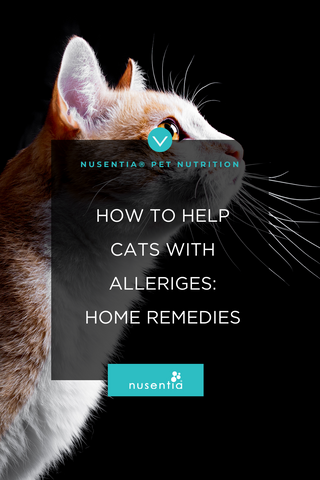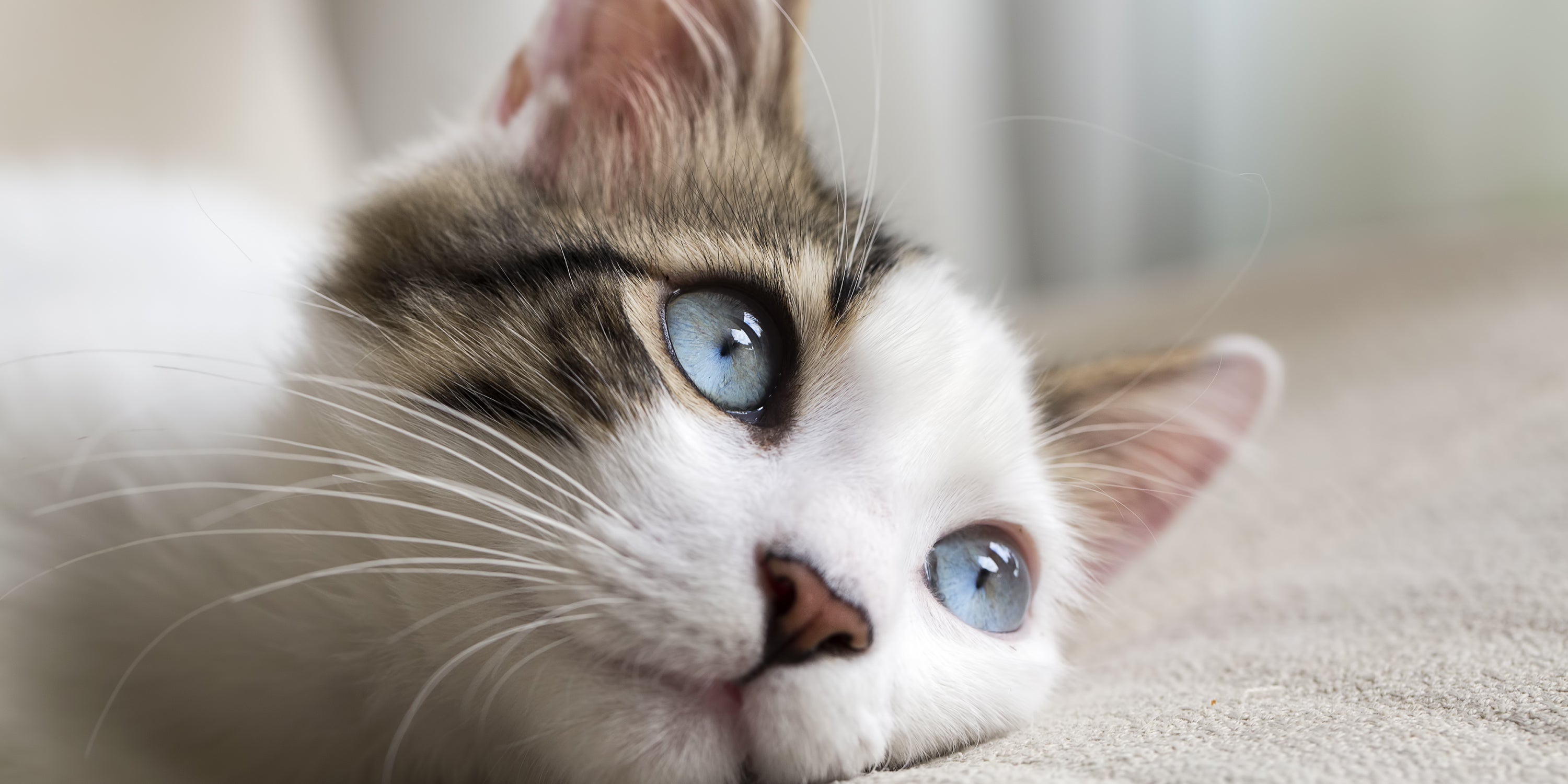
Tips for Cats with Allergies
Welcome to our guide designed to support your pet's health naturally. Find a carefully curated selection of natural supplements below as well as tips to further assist you in managing Cats with Allergies holistically.
-
Probiotic Miracle®
Regular price From $25.95Regular priceUnit price / per -
Enzyme Miracle®
Regular price From $23.95Regular priceUnit price / per -
Celavin™ Salmon Oil
Regular price $24.95Regular priceUnit price / per -
Spectrin™ for Cats
Regular price $19.95Regular priceUnit price / per -
Allergy Pack for Cats
Regular price $43.26Regular priceUnit price / per$50.90Sale price $43.26Sale
Collection: Cats with Allergies
Effective Allergy Management for Cats
"Help! My cat has allergies!"
Explore Nusentia® natural pet supplements designed to alleviate symptoms associated with cat allergies. Our high-quality ingredients ensure optimal absorption and effectiveness. Here are some more tips including lifestyle and diet that may help improve symptoms while avoiding cat allergy medicine for your furry friend and.
Natural Solutions for Cat Allergies
Omega-3 Fish Oil
Fish oil is crucial for reducing inflammation caused by food or inhalant allergies. Celavin™ omega-3 fish oil is third-party tested for purity, offering double the omega-3 of wild salmon oil.
Enhanced Nutrition
Integrating antioxidants like beta-carotene, vitamins C and E, selenium, and amino acids can protect against free radicals generated by allergic reactions. Spectrin™ liquid vitamins deliver these vital nutrients naturally.
Support Gut Health
Boost your cat's immune system, the cornerstone of allergy defense, by adding probiotics and enzymes to their diet. Consider the Miracle Pack for comprehensive gut health support.
Diet Considerations
Ensure your cat's diet is appropriate, avoiding carbohydrates or grains that could exacerbate allergies.
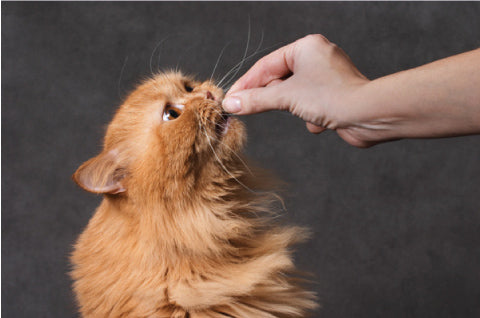
Understanding Cat Allergies
Allergies in cats can stem from inhalants, foods, or environmental irritants, often triggering an immune response. Cats typically develop allergies between 1-3 years of age, affecting all breeds.
Types of Allergies in Cats
- Flea Allergy Dermatitis
-
Food and Drug Allergies:
Common allergens include beef, dairy, wheat, egg, chicken, lamb, soy, pork, rabbit, and fish. -
Inhaled Allergies:
Triggered by grasses, molds, pollens, and dust mites. -
Contact Allergies
Caused by direct irritants to the skin.
Potential Causes
Genetics, environment, and early exposure to antibiotics can predispose cats to allergies by disrupting gut health.
Recognizing Allergies in Your Cat
- Gastrointestinal issues
- Vomiting
- Facial swelling
- Excessive scratching
- Ear discomfort
- Sneezing, coughing
- Swollen eyelids, hair loss
Addressing Cat Food Allergies
Identifying and eliminating problematic foods is key as bad diets can create long term chronic health issues for your cat. Incorporate variety when possible and consider a hypoallergenic diet. Your veterinarian may likely recommend a specific diet for your allergic cat. Typically, these hypoallergenic diets avoid grains and carbohydrates, as well as certain proteins.
Adding probiotics and enzymes can significantly improve digestive health and allergy resistance. Multi-enzymes, such as found in Enzyme Miracle®, can be extra helpful as they help break down ingredients which may otherwise become toxic or undigested in the body.
Managing Inhalant Allergies
- Skin Care: Address itching and scratching with appropriate skin treatments.
- Environment: Minimize allergen exposure by keeping sleeping areas clean and wiping down your cat's paws after outdoor activities.
- Supplements: Essential fatty acids and antioxidants can mitigate allergic reactions by reducing inflammation and free radical damage.
Final Thoughts
Often, allergies in cats are misdiagnosed, and the real problem is simply a poor diet. Natural home remedy treatments including probiotics, vitamins, and making dietary changes can be a wise starting point and might also help your cat avoid unnecessary prescription drugs, allergy medicine or antihistamines. However, it's important to always follow the advice of your veterinarian, as there may be an underlying health issue or diagnosis that needs attention.

